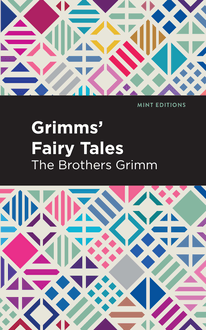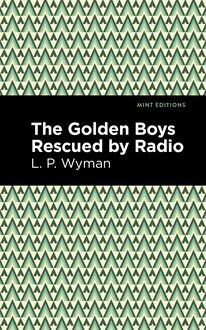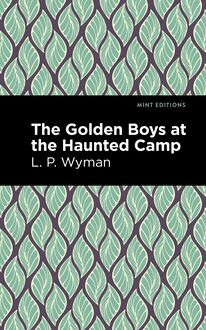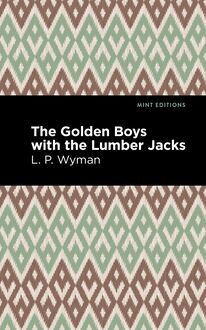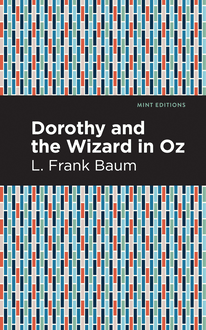-
 Univers
Univers
-
 Ebooks
Ebooks
-
 Livres audio
Livres audio
-
 Presse
Presse
-
 Podcasts
Podcasts
-
 BD
BD
-
 Documents
Documents
-
- Cours
- Révisions
- Ressources pédagogiques
- Sciences de l’éducation
- Manuels scolaires
- Langues
- Travaux de classe
- Annales de BEP
- Etudes supérieures
- Maternelle et primaire
- Fiches de lecture
- Orientation scolaire
- Méthodologie
- Corrigés de devoir
- Annales d’examens et concours
- Annales du bac
- Annales du brevet
- Rapports de stage
La lecture à portée de main
Vous pourrez modifier la taille du texte de cet ouvrage
Découvre YouScribe en t'inscrivant gratuitement
Je m'inscrisDécouvre YouScribe en t'inscrivant gratuitement
Je m'inscrisEn savoir plus
Vous pourrez modifier la taille du texte de cet ouvrage
En savoir plus

Description
The Golden Boys on the River Drive (1923) is an adventure novel by L.P. Wyman and one of seven books in his vastly underrated—and relatively unknown—Golden Boys series.
Each novel follows the adventures of Bob and Jack Golden, brothers from Maine with curious minds and adventurous hearts. Together, often alongside their trusted friend Rex Dale, the Golden Boys use their problem-solving skills and wilderness experience to overcome danger, discover strange places, and grow into fine young men.
Brothers Bob and Jack Golden are spending their break from military school deep in the Maine woods, at the lumber camp owned by their father. When they learn that their friend Rex Dale has gone missing on a fishing trip, their days of roaming the idyllic wilderness come to an end. Together the Golden Boys journey to Presque Isle, where they learn Rex is being held for ransom. As they struggle to rescue him, they have no clue as to what is unfolding back at the lumber camp. Big Ben Donahue, a rival logger, has hatched a conspiracy to steal their father’s lumber. If they have any hope of returning to school in Pennsylvania on time, the Golden Boys will need all of their skills as outdoorsmen—and some luck, as well. As The Golden Boys on the River Drive unfolds, and as one trial follows the other, no reader will want the excitement to end. With its brilliant blend of detective and adventure fiction, Wyman’s novel is an absolute thrill ride from start to finish.
L.P. Wyman’s The Golden Boys on the River Drive is the work of a talented author, and is both easy to read and difficult to put down. Published several years before the debut of The Hardy Boys series, which would dominate young adult fiction for decades to come, The Golden Boys series is long overdue for the attention and appreciation it deserves. Although originally published for an audience of teenage boys, Wyman’s series is perfect for children of all ages and genders, as well as for adults looking to return to the simple, exciting fiction of their youth.
With a beautifully designed cover and professionally typeset manuscript, this edition of L.P. Wyman’s The Golden Boys on the River Drive is a newly unearthed classic of young adult literature reimagined for modern readers.
Sujets
Informations
| Publié par | Mint Editions |
| Date de parution | 01 décembre 2020 |
| Nombre de lectures | 0 |
| EAN13 | 9781513267074 |
| Langue | English |
| Poids de l'ouvrage | 1 Mo |
Informations légales : prix de location à la page 0,0450€. Cette information est donnée uniquement à titre indicatif conformément à la législation en vigueur.
Extrait
The Golden Boys on the River Drive
L.P. Wyman
The Golden Boys on the River Drive was first published in 1923.
This edition published by Mint Editions 2020.
ISBN 9781513266633 | E-ISBN 9781513267074
Published by Mint Editions®
minteditionbooks .com
Publishing Director: Jennifer Newens
Design & Production: Rachel Lopez Metzger
Typesetting: Westchester Publishing Services
C ONTENTS I. T HE B REAKING U P II. T OWING III. W HERE IS THE C OMET ? IV. T HE R ACE V. B OB AND J ACK R ECEIVE S OME N EWS VI. U P A T REE VII. T HE E ND OF THE T RAIL VIII. T HE W OLF G HOST IX. H ELD U P X. T HE B OYS TO THE R ESCUE XI. T HE B ROKEN B OOM XII. A T OUGH T ASK XIII. A D IFFERENT K IND OF A R ACE XIV. L OG R OLLING
I
T HE B REAKING U P
“ H urrah! She’s breaking up.”
Two boys were standing on a little wharf looking out over the ice covered surface of Moosehead Lake in northern Maine. They were fine specimens of American boyhood. Bob Golden, nineteen years old, lacked but a trifle of standing six feet and was possessed of a body perfectly proportioned to its height. His brother Jack, a year younger, was not quite so tall but his body was as perfectly developed. Except when at school they had for years lived in the great out-of-doors, in the Maine woods and on the Maine lakes, and the free and open life coupled with the invigorating air of the Pine Tree State had given them “mens sana in corpore sano.”
They had arrived at the lumber camp belonging to their father the day before, having driven up from their home in Skowhegan, a small town about fifty miles to the south. The Fortress, a military college in Pennsylvania, where they were cadets, had closed for a three weeks’ vacation and they had lost no time in reaching the camp.
“She’s breaking up,” Jack repeated, dancing about like a wild man, on the end of the wharf. “Just look at that crack run out into the lake, will you,” he added, as a heavy booming sound reverberated through the vast forest.
“And just think,” Bob declared, as he grabbed his brother by the arm and held him fast, “by night there won’t be a speck of ice to be seen anywhere on the lake. I wonder where it all goes to so quickly.”
Jack was about to reply when the loud call of a horn rang through the air.
“I don’t know, but I do know where I’m going,” he cried as he turned and sprang for the shore. “Come on or I’ll eat all the flapjacks,” he called back, as he saw that his brother was still watching the ice.
“Be with you in a minute,” Bob shouted, his eyes still on the lake.
It was a fascinating sight, the ice slowly heaving with a suppressed restlessness as though loath to give up its sovereignty of the lake. But hunger soon overcame his desire to watch the lake and he was but a few minutes later than his brother in entering the long mess room.
Breakfast was on the long table, along the two sides of which about forty men were doing their best to make way with the huge piles of hot cakes and bacon and eggs, to say nothing of doughnuts and coffee.
“You ver’ near mees der grub, oui,” shouted big Jean Larue, as Bob took his seat beside Jack.
“Guess there’s plenty left,” he laughed, as he glanced about the table.
“Oui, dar’s allays pleenty der grub here,” declared another Kanuck, a huge six footer, named Pierre, from his seat near the foot of the table.
Pierre’s statement was correct, for Mr. Golden believed in giving his men good food and plenty of it, and there was never any fault found with the bill of fare in any of his camps.
“We geet the first raft heetched up tomorrow,” Jean said, as he helped himself to another pile of cakes.
“Sure we will, eef you not eat so mooch you no can stir,” Pierre shouted, and a roar of laughter filled the vast room in which Jean joined. His appetite was a standing joke with the men, and he really seemed to take pride in it.
“Dat all right,” he said, as the laughter subsided. “After breakfast I, Jean Larue, put you on your back ver’ queek. You tink I eat too mooch, hey?”
“You mean you try. What you call eet? You spell able once,” Pierre grinned, as another roar of laughter greeted his words.
“Better get a wiggle,” Jack advised his brother, as he helped himself to two more doughnuts. “I wouldn’t miss seeing that match for a farm.”
“Nor I, but I’ll be there. Don’t you worry,” Bob replied, as he reached for the plate of fresh cakes which the cook’s helper had just brought in.
Both boys knew that a wrestling match between Jean Larue and Pierre le Blanc would be worth going miles to see. Both were big men and well known for their deeds of strength and athletic ability. Pierre was a good-natured, generous fellow and was a favorite with his companions. Jean, at the beginning of the winter, had been the bully of the camp. An arrogant braggart, he had been feared and hated by the greater part of the crew. Just after Christmas Bob, who with his brother had come to the camp for their winter vacation, had had a fight with the Frenchman and, thanks to his superior knowledge of boxing, had given him a sound whipping. This seemed to have broken the man’s spirit; but, a short time later, the boys saved his life and to their great joy he became a different man. All his old arrogance was gone and he became one of the most popular members of the crew.
“Come on dar,” Pierre shouted, as he pushed back his chair. “You hav’ now eat enough for two men. Eef you eat mooch more eet will be no fun to put you on your back.”
“Huh, I, Jean Larue, will geeve you all der fun you want in one leetle minute,” Jean retorted, as he too jumped up from his chair and started for the door, followed by the entire crew.
The snow still lay deep in the woods, but in front of the bunk house it was packed hard, making a smooth although a slippery floor. Once outside in the crisp air, the two men quickly pulled off their heavy mackinaws and thick woolen shirts.
“My, what men,” Bob whispered, as they stood there stripped to the waist.
Physically, at least, they were deserving of the exclamation. Big and thick set, without an ounce of superfluous flesh on their torsos, the muscles played in ripples beneath the smooth skin.
No complicated set of rules governed an impromptu match of this kind. No getting of three points on the ground was necessary to win. The first man down was the loser, and in case both came down together, the man on top was the winner.
A stranger would have thought, from the appearance of the men, that it was to be a fight to the finish, but all present knew that the two were great friends and that the loser would take his defeat in good part and hope to win the next time. However, they had seen the two men wrestle before and knew that each would exert himself to the utmost to win.
For some moments the two giants circled around each other, watching with hawk-like keenness for an opening. The right hold meant half the battle, as they well knew, and a false hold might well mean defeat. Suddenly, seeing his chance, Pierre leaped forward and caught his opponent about the waist. And then the real struggle began.
“Just look at those muscles will you,” Jack whispered to Bob.
It was little wonder that the display excited the boy’s admiration. The huge muscles stood out like immense cords as the two men strained with all their might to upset each other. Pulling and pushing they whirled about on the smooth snow, neither seeming to be able to gain the advantage. Once Jean slipped, and the boys thought that he was going down, but he quickly recovered his footing and, in a second, seemed on even terms again. Both men were breathing hard and it seemed as though one or the other must yield soon, but as to which one it would be there was no indication.
Then suddenly the end came. The boys saw Jean’s powerful arms creep upward, then quickly he bent his back, and Pierre, taken by surprise, flew over his head, landing on his back nearly ten feet away. For a moment he lay there striving to regain his breath, which had been driven from his body. Then eager hands pulled him to his feet and he ran for Jean, who was already pulling on his shirt.
“Dat one ver’ bon hold,” he said as he grasped the victor by the hand.
“Oui, she one ver’ fine hold,” Jean agreed, accepting the outstretched hand with a broad grin. “I thot you had me one time,” he added as he drew on his mackinaw.
“Oui, I ver’ near geet you,” Pierre grinned as he began to dress.
“It’s fine that those men can go through a match like that and still be good friends,” Bob declared as he and Jack hurried away to the wharf.
Even they, accustomed as they were to the rapidity with which the ice breaks up when it once starts, were surprised at the change which one short hour had wrought. What had been a broad expanse of frozen surface now was a heaving mass of huge cakes of ice, interspersed with stretches of open water.
“Isn’t it wonderful?” Jack asked as he gazed at the sight.
“Nothing finer,” Bob agreed. “But come on, let’s get the rods and try for trout in some of those open stretches.”
The finest fishing in the lakes of northern Maine is just as the ice goes out. Then the big trout are hungry after the long winter beneath the ice, and lucky is the fisherman who is there at the time.
As the boys returned to the wharf with their rods it happened that there was an open space just out in front. Bob was first to have a fly lazily floating on the surface of the water, but it had hardly struck the surface before it disappeared and a tug at the line told the boy that he had hooked the first fish of the season. From the way the reel whined as the line ran out he knew that it was a big one. He pressed on the drag as hard as he dared but it seemed to have little effect.
“You’ll have to make it snappy or you’ll lose him,” Jack shouted. “That opening’s going to close in a minute or two, and if he gets under the ice, good night.”
Bob saw that what his brother had said was
-
 Univers
Univers
-
 Ebooks
Ebooks
-
 Livres audio
Livres audio
-
 Presse
Presse
-
 Podcasts
Podcasts
-
 BD
BD
-
 Documents
Documents
-
Jeunesse
-
Littérature
-
Ressources professionnelles
-
Santé et bien-être
-
Savoirs
-
Education
-
Loisirs et hobbies
-
Art, musique et cinéma
-
Actualité et débat de société
-
Jeunesse
-
Littérature
-
Ressources professionnelles
-
Santé et bien-être
-
Savoirs
-
Education
-
Loisirs et hobbies
-
Art, musique et cinéma
-
Actualité et débat de société
-
Actualités
-
Lifestyle
-
Presse jeunesse
-
Presse professionnelle
-
Pratique
-
Presse sportive
-
Presse internationale
-
Culture & Médias
-
Action et Aventures
-
Science-fiction et Fantasy
-
Société
-
Jeunesse
-
Littérature
-
Ressources professionnelles
-
Santé et bien-être
-
Savoirs
-
Education
-
Loisirs et hobbies
-
Art, musique et cinéma
-
Actualité et débat de société
- Cours
- Révisions
- Ressources pédagogiques
- Sciences de l’éducation
- Manuels scolaires
- Langues
- Travaux de classe
- Annales de BEP
- Etudes supérieures
- Maternelle et primaire
- Fiches de lecture
- Orientation scolaire
- Méthodologie
- Corrigés de devoir
- Annales d’examens et concours
- Annales du bac
- Annales du brevet
- Rapports de stage
